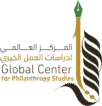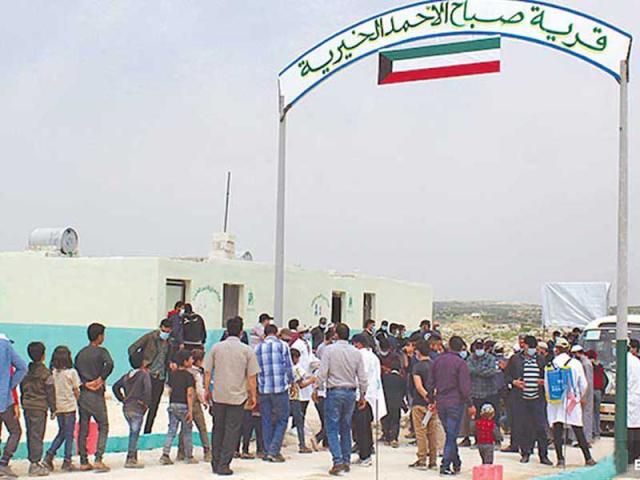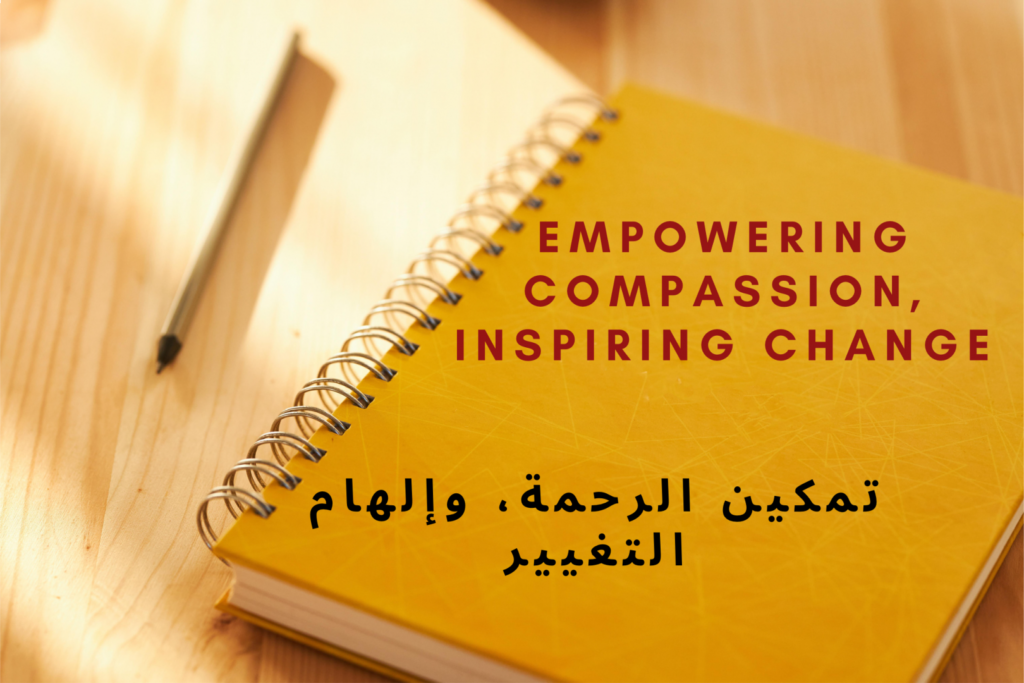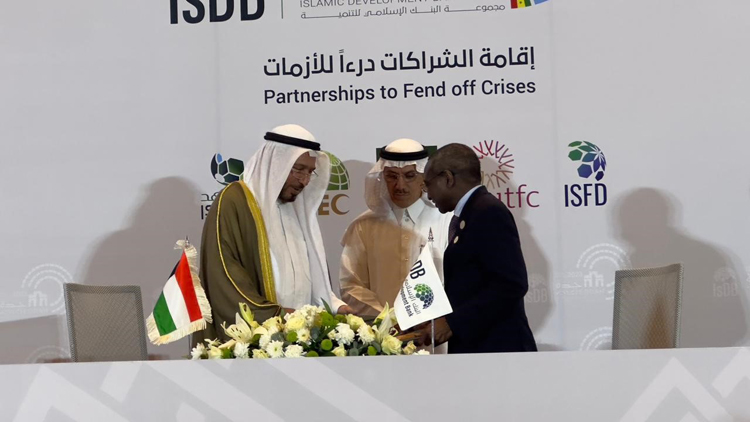To support the humanitarian situation of displaced Syrians
Sheikh Sabah Al-Ahmad’s offspring follow his footsteps as they fund educational, health, relief and service projects
Sabah Al-Ahmad Primary School for the Education of 900 Students encompasses 15 Classrooms
Sabah Al-Ahmad Medical Clinic treats 15,000 people in 6 clinics, pharmacy and laboratory
Two artesian wells to provide the needs of 1,964 displaced families of safe drinking water
Opening a commercial market to serve the displaced, alleviate their suffering and reduce the expenses of their transportation to neighboring markets
Following the footsteps of the leader of humanitarian action, His Highness the late Amir Sheikh Sabah Al-Ahmad, may Allah have mercy on him, his heirs donated to fund a number of educational, health, relief and service projects in the charitable city of Sabah Al-Ahmad in northern Syria to support the humanitarian situation of displaced Syrians.
These projects came as part of IICO’s efforts to complete the projects of the fourth phase of the city, which includes 1,800 housing units, in addition to many facilities that were implemented in stages.
The Chairman of the International Islamic Charitable Organization, Dr. Abdullah Al-Matouq, expressed thanks and gratitude of IICO to the heirs of the late Sheikh Sabah Al-Ahmad for the benevolence, effort and giving generously in order to alleviate the suffering of the displaced Syrians.
Al-Matouq pointed out that the late Amir has spared no effort in providing all forms of humanitarian support to the displaced Syrians since the outbreak of the crisis in 2011, and that his heirs have followed.
With the support of the heirs of the late Amir Sheikh Sabah Al-Ahmad, IICO opened a primary school, a health dispensary, a commercial market and two artesian wells, to serve displaced Syrians in the charitable city of Sabah Al-Ahmad in the northern countryside of Idlib.
Sabah Al-Ahmad Primary School provides educational services to 900 students, distributed over 15 classrooms, in addition to which the school includes an internal courtyard with an area of 897 m2, 12 toilets, 3 administrative offices, a Musala and a library.
The school, which was built on an area of 1,800 m2, took about 8 months to finish in cooperation with Sham Al-Khair Humanitarian Society.
The late Amir Sheikh Sabah Al-Ahmad donated for the construction of 300 houses during the second phase of the construction of housing units in Sabah Al-Ahmad Charitable City. This donation was a good head start and blessing for the project consisting of 1,800 houses and many health, educational and other services and facilities.
The problem of school dropout is one of the most important problems facing the children of displaced Syrians, either due to the absence of educational services, or the drop of school-age children to the labor market to help their families cope with the living burdens.
Being aware of its responsibility, IICO is keen to provide educational opportunities for the children of the affected areas, especially the displaced Syrians because of the magnitude and protracted duration of their crisis, based on its strategy, which focuses in one of its axes on supporting education.
With many hospitals and health centers in northwestern Syria suspended in recent months due to a lack of funding, pressure and burdens have increased on small centers operating in the region, according to media statements by local officials.
In the context of the projects of the heirs of the late Amir, IICO opened the Sabah Al-Ahmad Medical Clinic in the same city to serve 15,000 people. The clinic is located on an area of 288 m2, consisting of 6 clinics, two administrative offices, a pharmacy, a reception hall, a bakery and a toilet. The project was completed within 180 days.
In the absence of infrastructure in the area, IICO inaugurated two artesian wells 500 metres deep to serve 1,964 displaced families.
The wells provide the population’s needs of safe drinking water and human use, provide the costs and expenses that the displaced have been spending to purchase water, and provide employment opportunities for some of the displaced by supervising the wells and transporting water to the displaced population.
The opening of the commercial market was an important development to serve 90 people and their families directly and thousands of people indirectly, to alleviate their suffering, reduce the expenses of their transportation to the markets of surrounding villages and camps, and provide opportunities for trade, work and money making.
Thousands of displaced Syrians are living in overcrowded informal camps that lack the slightest basic necessities of life such as water, electricity and sewage networks, threatening the spread of diseases and epidemics in light of the lack of health services.
Some 3.1 million people, including 2.8 million internally displaced, are facing a health crisis in northwestern Syria, where hospitals and medical facilities are struggling to operate due to the lack of international aid granted to the region, according to a recent report by Amnesty International issued in May 2022.
According to the latest statistics of the “Response Coordinators” team in northern Syria, the number of displaced Syrians has so far reached about 2.1 million displaced people, out of more than 4 million Syrians living in the areas of northern Syria, while the population of the camps is one million and 43 thousand and 869 displaced people, living in 1,293 camps, including 282 informal camps established on agricultural land, who do not receive any support or humanitarian assistance from the United Nations.




